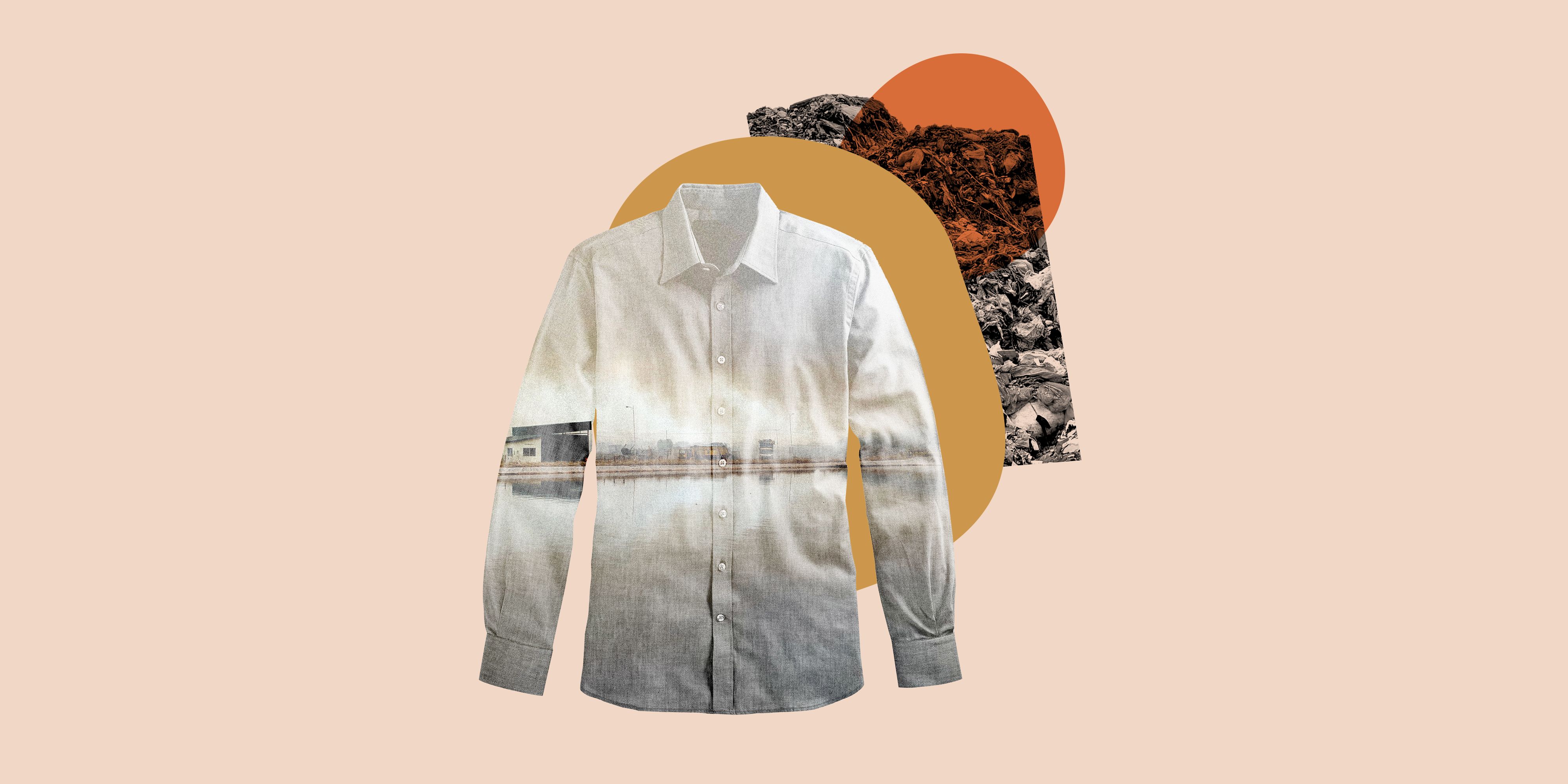Cape Town Sustainable Fashion: Eco-Friendly Trends to Watch
Cape Town Sustainable Fashion: Eco-Friendly Trends to Watch
Blog Article
Remain Ahead of the Curve by Discovering Innovative Fashion Fads
In an industry as dynamic as fashion, staying in advance includes even more than just complying with current trends-- it demands an exploration of technology. The merging of modern technology and fashion advertises a new age of consumer involvement.

Embracing Smart Textiles
In recent years, the garment industry has experienced a transformative change with the integration of clever fabrics, a cutting-edge advancement that mixes modern technology with textile. This advancement stands for not only a blend of visual appeals and functionality but likewise a significant jump towards sustainability and customization in vogue. Smart textiles, also called e-textiles, installed advanced electronics such as sensing units and conductive strings within the textile, enabling garments to connect with the atmosphere or the wearer.
These textiles are made to check physiological criteria, such as heart price or body temperature, offering real-time health and wellness analytics. Beyond wellness applications, wise fabrics are also being made use of for adaptive apparel, which can transform color or pattern in response to environmental stimulations, hence using a vibrant style experience.
Moreover, the growth of energy-harvesting textiles that produce power from motion or sunshine is leading the way for self-dependent wearable technology. This innovation is appealing to ecologically aware customers and developers aiming to decrease the eco-friendly impact of style. As study and growth in this area advance, clever textiles are anticipated to end up being significantly prevalent, improving the landscape of modern style with their multifunctional capacities.
The Increase of 3D Printing
Revolutionizing the production landscape, 3D printing has arised as a game-changer in the garment industry. This advanced innovation has actually allowed developers to push the borders of imagination, generating detailed and customized garments that were previously unimaginable. By leveraging digital design and additive manufacturing, 3D printing facilitates the production of complex geometries and patterns, allowing developers to trying out new appearances and frameworks.
A noteworthy advantage of 3D printing in vogue is its capacity to produce on-demand, reducing waste and reducing stock requirements. This effectiveness not just optimizes production procedures but additionally permits rapid prototyping, enabling designers to bring their visions to life in a shorter timeframe. Additionally, 3D printing supports personalization to a degree unmatched by typical approaches, supplying unique layouts and tailored fits customized to private consumer choices.
The surge of 3D printing has actually likewise equalized style, making it obtainable to arising designers who can now make premium items without substantial financial investment in typical manufacturing framework. As modern technology remains to breakthrough, the style sector is positioned to harness the full potential of 3D printing, discovering brand-new products and strategies that will undoubtedly redefine exactly how fashion is conceived and generated.
Lasting Fashion Technologies
As the apparel industry comes to grips with journalism demand for environmental responsibility, sustainable fashion developments have arised at the center of transformative adjustment. The expanding understanding of eco-friendly impact has actually fueled a shift towards more eco-conscious methods and materials. Brand names and developers are now focusing on sustainability, including techniques that lessen waste and minimize carbon footprints.
One significant advancement is the surge of circular style, which stresses recycling and upcycling to click here for more info prolong the lifecycle of garments. This approach not just minimizes waste but also encourages consumers to adopt a more conscious approach to apparel usage. Additionally, making use of lasting products, such as natural cotton, hemp, and recycled polyester, has actually acquired traction. These materials need much less water and power throughout production, substantially reducing ecological effect.
Another innovation hinges on the fostering of ingenious dyeing strategies that utilize waterless procedures or all-natural dyes, thereby decreasing the substantial amounts of water and chemicals commonly used in fabric dyeing. Furthermore, innovations in biotechnology have led to the creation of lab-grown leather and materials, offering eco pleasant and cruelty-free options to traditional materials. Via these introducing efforts, the fashion market is making meaningful strides towards a much more lasting future.

Tech-Integrated Clothing
Tech-integrated clothing represents a cutting-edge combination of style and modern technology, reshaping how people interact with their apparel. This cutting-edge domain is noted by the addition of wise textiles and embedded electronic parts, boosting both performance and aesthetic allure. From physical fitness trackers installed in sportswear to heated coats regulated by means of smartphone apps, tech-integrated garments supplies customers unprecedented ease and versatility.
Introducing brand names are driving this pattern, concentrating on developing garments that react to environmental stimulations or individual commands. For example, some garments can change shade or pattern in reaction to temperature shifts, while others include biometric sensing units to check health metrics like heart rate or anxiety degrees. The smooth combination of modern technology into textiles also extends to ecological sustainability, with initiatives to establish self-cleaning textiles or garments that adjust to weather conditions, thus Website reducing the need for multiple layers.
Moreover, the advent of wearable technology is not just restricted to clothes but reaches devices like watches and glasses, further widening the scope of tech-integrated style. As the market continues to introduce, the potential for customization and personalization in garments grows, offering consumers special, tech-enhanced fashion experiences that accommodate their individual needs and choices.
Future of Virtual Fashion
Recently, the future of virtual style has arised as a transformative pressure within the industry, leveraging innovations in digital technology to redefine just how style is developed, experienced, and eaten. By incorporating augmented fact (AR), online reality (VR), and 3D style devices, developers can currently craft immersive and interactive experiences that transcend typical fashion limits. Virtual style enables the production of garments that exist only in electronic settings, offering unlimited opportunities for development without the restrictions of physical manufacturing.
This electronic shift not only presents opportunities for creative expression yet additionally addresses sustainability worries fundamental in standard fashion practices. Cape Town Sustainable Fashion. By eliminating the demand for physical resources, online fashion lowers waste and lessens carbon footprints. Additionally, the increase of virtual fashion lines up with the boosting consumer demand for one-of-a-kind and tailored experiences, as online garments can be personalized and tailored to individual choices effortlessly

Verdict
The fashion market's future lies in the assimilation of ingenious technologies and sustainable techniques. Digital style is positioned to redefine consumer communications.
In recent years, the fashion market has experienced a transformative change with the integration of clever textiles, an advanced development that mixes technology with textile.As the style industry grapples with the pushing need for ecological duty, lasting style advancements have actually emerged at the center of transformative modification.In recent years, the future next page of digital fashion has actually arised as a transformative force within the market, leveraging improvements in electronic innovation to redefine how fashion is developed, experienced, and consumed. The rise of digital style straightens with the raising customer need for one-of-a-kind and tailored experiences, as virtual garments can be personalized and customized to specific choices with convenience.
The style industry's future lies in the assimilation of lasting practices and cutting-edge innovations.
Report this page